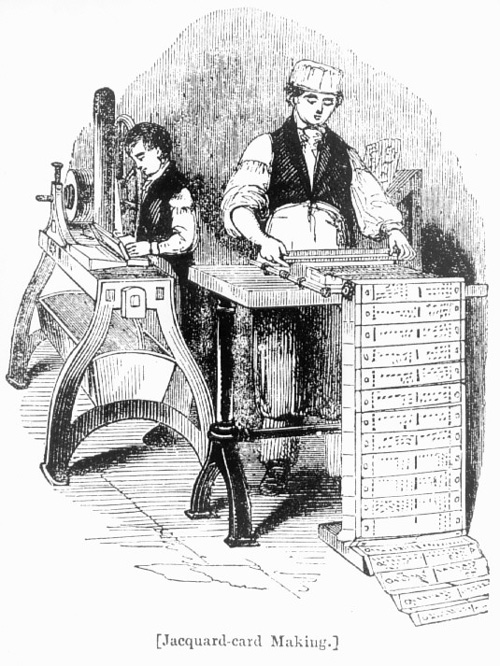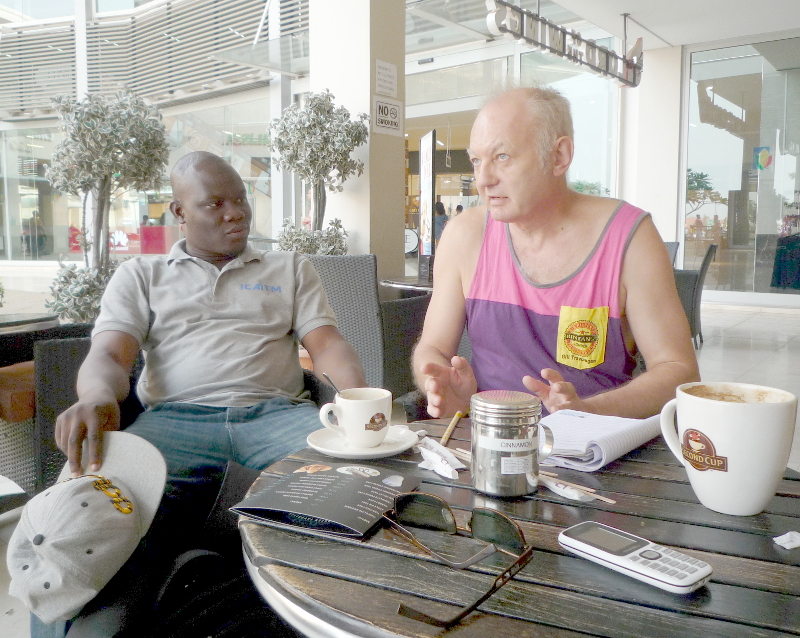The paradox of programmers of the 1990s and those of today
When personal computers were first introduced, most of them came equipped with a simple programming language, usually a variant of BASIC. Interacting with the computer was closely integrated with this language, and thus every computer user, whether he wanted to or not, would get a taste of it. Now that computers have become plentiful and cheap, typical users don't get much further than clicking things with a mouse. For most people, this works very well. But for those of us with a natural inclination towards technological tinkering, the removal of programming from everyday computer use presents something of a barrier. -- eloquent javascript
Surely in the 1980s, I was not born. But by its end I was. And then I was not a tech guy because I was still a baby.
What of you?
I started to see tech stuff on Televisions(black and white, 10"). In 2000 I had the chance to touch a computer with my own hands. Quickly around 2002, I wrote my first Hello World with C ANSI.
If you read up here you might probably be thinking:
- "Wow, about twelve years into IT. That's long ago".
- Or you might be saying "Did he start only then? He's a young guy".
If you are in the first category, you have something to discover on how lucky you are today.
If you belong to the second category you will probably be a great testimony for this new generation.

Hewlett and Packard in their garage workshop - computerhistory.org
In this post, I would like to share with you the experience(stories I read/heard) and differences in jobs and routine between developers in 1960's and prior, and those of today. Of course, I don't belong to the first side of the history, but I've tried to collect as much as possible information as I could. Plus, I saw the ending of that era, so I can say something a bit about it.
Yesterday I met Andrew Brookes, a 60 years man from London who still codes. In fact, he codes PHP and can use frameworks like FatFree or Laravel. We spoke for about three hours. Andrew and I met on LinkedIn last year. At his arrival in Accra this year he made his best to meet me in person.

Zooboole(left) and Andrew Brookes(right) At West Hills Mall - Accra-Ghana
When he mentioned his first machine which had 112MB RAM and 5GB hard drive I laughed. When you buy a machine in pieces and you have to mount it. When he talks of using Slackware over Ubuntu, and much more, I realize how much is been forgotten.
That was the era where tech was emerging deeply into people's lives. A lot of resistance, doubt, and ignorance was faced. But the love of it was beyond everything.
At that moment computers were not at the standard we know them today. The software was not as cool as it's today. I remember when I was using Macromedia Dreamweaver back then in 2005. Every time my PC goes off and I haven't saved my documents, they could crash and come back blank. I can imagine people before us.
Communities were tiny and rare. Unlike today almost everyone has an internet connection. We have all types of social media. Back then, even just in the 1990s to 2000. The only way you could talk to others was through forums. How many of us today still use forums? When was the last time you asked a question on a forum? or even on Stack Overflow?
Information is cheap and available everywhere today. But we have fewer buyers.
Take the case of training. Before getting full training in web/software development it was hell and that would have cost so much that, few people dared go into it. Today there are millions of websites giving all these resources for free. Look at Khan Academy, Look at Course Era, look at EDX, etc.
Now, all seem well but when we look closer we have nothing. People in that era had few tools. They had low-capability tools. They had less opportunity to further their knowledge or collaborate unlike us today. But, funny enough, the best tools and technologies we have today were created at that time. Look at the Linux OS. More, what of the Internet itself? Programming languages such as C, C++, Java, FORTRAN, and so on.
It's very surprising how people still can't learn while there is a lot of information around us for free. Today you can even study in the USA, UK, Africa, and Asia by being in a different country or continent. You can even have courses from universities like Harvard, or MIT for free. But still, we know nothing.
I want you to know today that you are fortunate compared to the people before us. They managed to survive it. They managed to master their technology and kept it for us as a legacy.
When you stand and say I don't have a computer to learn, I don't have enough data to browse, I don't have time to learn, I have not been to programming school, or I can't find a good tutorial, understand that you are deceiving yourself. Do you know what it took people to compile their first "Hello World" app in C? Today you can learn and run almost all programming languages on your browser. Today you have Google, StackOverflow, DuckDuckGo, Medium, Quora, and beautifully chatGPT.
Know this: you are a lucky guy. You have all you need to be that guy you've always dreamed of. Being an ancient of something today means you had been a novice and fresher in the past. Do it today, I mean now.
Happy Learning time.
